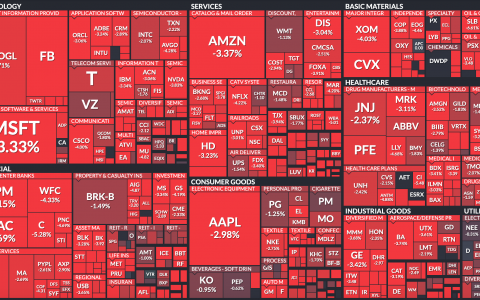
(Bloomberg) The jacks of all trades should watch out. Hedge fund investors want expert stock-pickers now.
That’s the consensus found in a survey of some 300 investors by Goldman Sachs Group Inc. Industry allocators -- including funds of funds, pension funds, consultants, family offices and endowments -- pulled $16.4 billion from generalist long-short equity funds in the first half of this year, more than any other strategy, according to data from the bank and Hedge Fund Research Inc.
The shift reflects how hard it has become to shine just by picking winners and losers from the broad stock market as information edges get scarce and managers pile into similar trades. Specialists in areas such as health care and technology have posted some of the best investment returns in recent years.
“It has been tough out there to find alpha-producing managers and one place where the portfolio can begin to differentiate itself is in specialists who have big boats fishing in small ponds,” said Allen Erickson, who invests money in hedge funds for ultrahigh-net-worth individuals at Turtle Lane Partners. “For a generalist, it’s hard to beat the robots.”
The biggest hedge fund startup this year has been the $2 billion Woodline Partners, a stock shop focused on health-care and technology companies. The firm’s fundraising success underscores Goldman’s finding that health-care and technology, media and telecom managers are the most sought-after among equity fund specialists in 2019, collectively accounting for almost 80% of investor demand.
Overall, 28% of the investors surveyed said they are looking to add sector-focused equity managers -- the largest jump relative to last year, and more than any other strategy -- while 19% are seeking to add generalists, only a slight uptick. The biggest drop-off in interest was among macro managers, Goldman found, with about half as many investors planning to allocate to discretionary and systematic macro strategies compared with last year.
Interest in Sector Experts Jumps
In general, long-short equity managers have rebounded from 2018 in their performance, with the majority of their returns this year explained by alpha, or gains in excess of the market. The survey, which looked at allocators of about $700 billion to hedge funds, was conducted by Goldman’s prime brokerage unit in July.
Helping to drive demand toward the specialists is their track record. Health-care managers among Goldman’s clients posted annualized returns averaging about 45% since the start of 2016, without leverage, while generalists gained 28%. TMT funds returned an annualized 42%.
While the number of startups has dwindled -- the first half of 2019 was the slowest start to a year for new hedge funds in at least a decade, according to HFR -- interest in health-care specialists has brought forth a spate of sector-specific funds in addition to Woodline.
Former Citadel money manager David Witzke is planning to start biotechnology and health-care fund Avidity Partners Management this year with Highland Capital Management alumnus Michael Gregory, according to documents seen by Bloomberg. Witzke ran one of the largest health-care portfolios at Citadel unit Surveyor Capital, according to people familiar with the matter.
Kevin Molloy, who oversaw health-care investments at Jana Partners, began trading medical technology and pharmaceuticals-oriented fund Iron Triangle Partners in June. The fund now oversees more than $300 million, a person with knowledge of the matter said, asking not to be identified because the information isn’t public. Scott Green, a former partner at OrbiMed Advisors, began 8 Knots Management, a market-neutral health-care investment firm in July, according to a person briefed on the matter.
Arsani William, who left Farallon Capital Management earlier this year, started biotech-oriented Logos Capital Management in September with more than $200 million in commitments from investors including family offices, endowments and foundations, another person said.
Political volatility has contributed to health-care stocks underperforming the broader equity market, further fueling demand for industry experts. President Donald Trump has taken aim at drugmakers over costly medications, while Congress deliberates its own pricing proposals. “Medicare-for-All” reforms to U.S. health insurance have taken hold of the debate stage as Democrats gear up for the 2020 election.
The sound bites and headlines have whipsawed stocks, making it harder for generalists to profit, according to Les Funtleyder, a money manager who focuses on health at E Squared Capital Management.
“The macro environment in health care isn’t favorable right now, so there’s definitely been a pickup of interest in specialists,” he said. “People are realizing there are real risks, political risks.”



